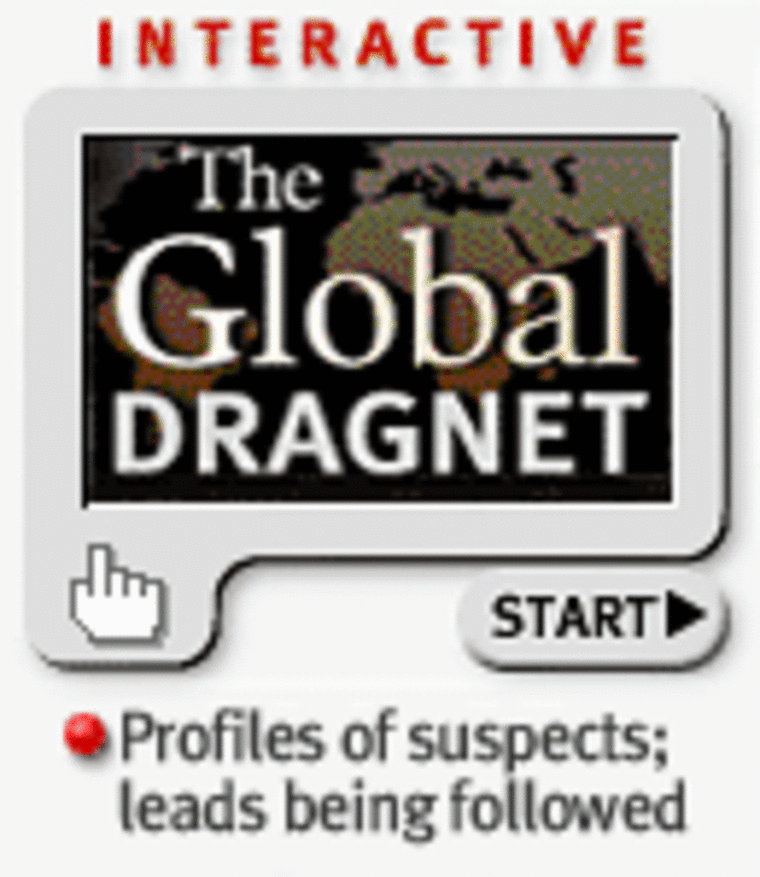Top Justice Department and FBI officials turned down a request by Minneapolis FBI agents early last month for a special counterintelligence surveillance warrant on a suspected Islamic terrorist who officials now believe may have been part of the Sept. 11 plot to attack the World Trade Center and Pentagon, NEWSWEEK has learned.
THE HANDLING OF the case of Zacarias Moussaoui—who is now being held in detention in New York—has raised new questions about how U.S. law enforcement officials handled critical intelligence that, in retrospect, might have alerted them in advance to the deadliest terrorist plot in U.S. history.

Sources familiar with the case tell NEWSWEEK that FBI agents in Minneapolis seized Moussaoui’s computer in mid-August after officials at an Eagan, Minn., flight school tipped them off that the 33-year-old French citizen was acting suspiciously. Moussaoui had sought training only in making turns—not take-offs and landings—and specifically asked about flying over New York air space, officials said.
But, while Moussaoui himself was placed in detention on minor immigration charges on August 17, agents in Minneapolis were never given approval by Justice Department officials in Washington to open up the hard drive on the suspect’s computer. The Minneapolis agents sought approval to do so—and to take other investigative steps aimed at Moussaoui—in early September under the Foreign Intelligence Surveillance Act (FISA), officials said. This came after a FBI “trace”—a request for information from friendly foreign governments—yielded a report from French intelligence that Moussaoui had been associated with members of an Algerian terrorist group and may have traveled to Afghanistan.

When agents finally cracked into the computer hard drive after the Sept. 11 attack, officials found new information that only made them more suspicious about Moussaoui. Among the contents, sources said, was data on “wind patterns” relating to crop-dusters as well as a wealth of other information he had pulled down from the Internet involving crop-dusting aircraft.
The information was considered sufficiently alarming that FBI officials requested the immediate downing of all crop-dusting aircraft, fearing that terrorists might be plotting to use them for a chemical or biological attack. (The planes have since been allowed to fly—but not over urban areas.)
From the moment he was detained more than six weeks ago, Moussaoui has consistently refused to cooperate with U.S. law enforcement and many officials are now highly suspicious of his conduct. One widely held theory among the law enforcement community is that Moussaoui—who entered the country only last February after living in London—was supposed to have been the fifth hijacker on the United Airlines flight that crashed in southwest Pennsylvania, the only one of the four seized that day that had only four, instead of five, hijackers aboard.
But there is still no consensus on the matter. “The bottom line is that nobody in the intelligence community has been able to figure out what this guy was up to,” said one official.
Nevertheless, in the wake of the Sept. 11 attack, the rejection of the FISA warrant has produced tension between field agents in Minneapolis and their Justice Department and FBI superiors in Washington. Officials in Washington are adamant that there was insufficient grounds to approve the warrant based on what was produced by Minneapolis agents. “There does not seem to be any disagreement that the legal standards [for a FISA warrant] weren’t met,” said one top U.S. law enforcement official. The law requires the bureau to show evidence that the suspect is an “agent” of a foreign power or terrorist group, something the Minneapolis field agents never had, the officials said.
But other law enforcement officials are equally insistent that a more aggressive probe of Moussaoui—when combined with other intelligence in the possession of U.S. agencies—might have yielded sufficient clues about the impending plot. “The question being asked here is if they put two and two together, they could have gotten a lot more information about the guy—if not stopped the hijacking,” said one investigator.
© 2003 Newsweek, Inc.